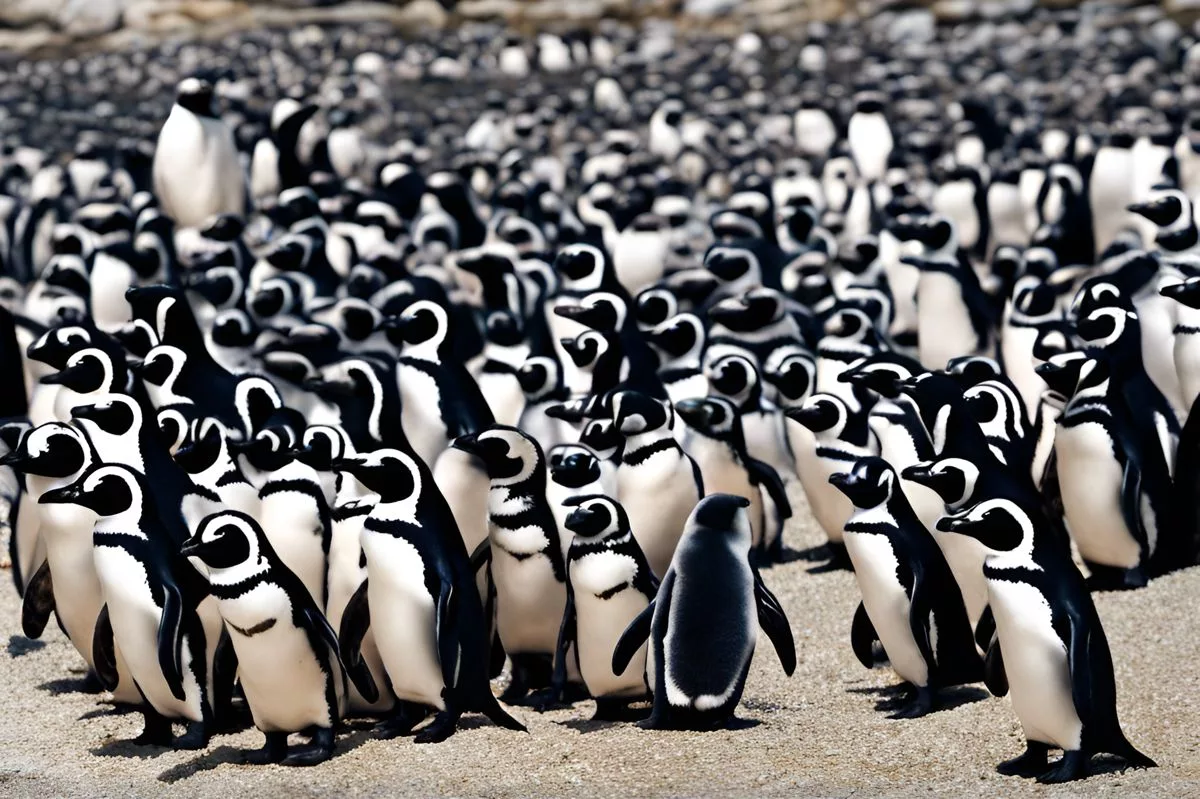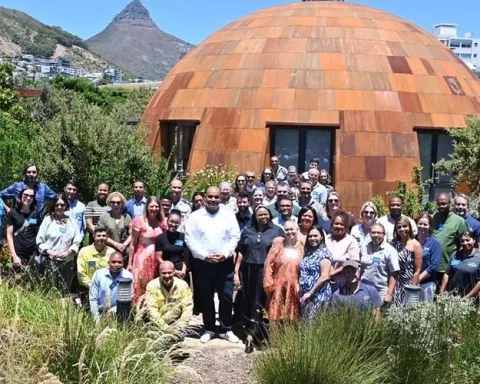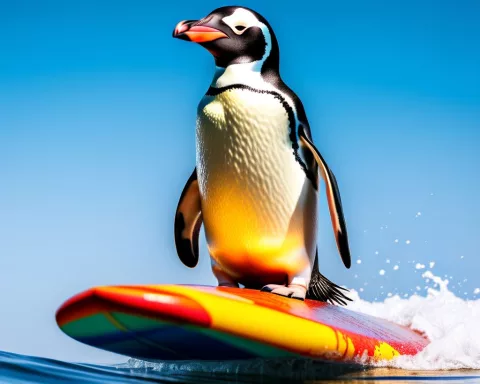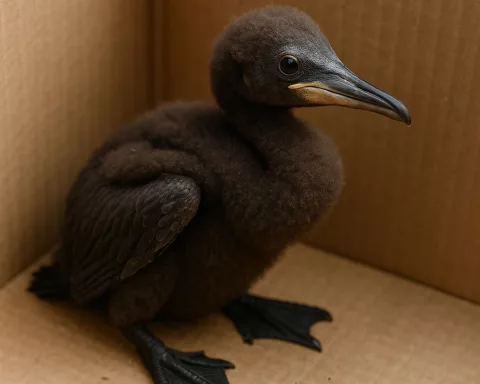The African penguin population is at risk of extinction due to a dwindling availability of prey, with conservationists predicting they could disappear entirely by 2035. The Simon’s Town colony is a beacon of hope, as it has managed to maintain stability largely due to the prohibition of commercial fishing for small pelagics in False Bay since the 1980s. Despite legal battles to replace ineffective fishing closures, the delicate balance between commerce and conservation highlights the need to safeguard Earth’s biodiversity.
The Looming Extinction of the African Penguin: An Urgent Call to Action
The Impending Crisis
The African penguin, a once ubiquitous species gracing the shores of Simon’s Town, teeters precariously on the edge of extinction. Conservationists predict that if current trends persist, they could disappear entirely by 2035. The primary catalyst for this impending catastrophe is the dwindling availability of prey.
The Impending Crisis
The African penguin, a once ubiquitous species gracing the shores of Simon’s Town, teeters precariously on the edge of extinction. Conservationists predict that if current trends persist, they could disappear entirely by 2035. This grim forecast has sent ripples of alarm through environmental and conservation communities. Organisations like BirdLife South Africa and the Southern African Foundation for the Conservation of Coastal Birds (Sanccob) have sounded the clarion call, pointing to an alarming 97% decline in the penguin population over the past century. The current count of breeding pairs is alarmingly less than 10,000.
The primary catalyst for this impending catastrophe is the dwindling availability of prey. The penguins are in a stiff race against commercial purse-seine boats, which are hoovering up sardines and anchovies near the six largest African penguin breeding colonies. These colonies house a staggering 90% of South Africa’s African penguins.
A Colony of Hope Amidst Crisis
Despite this bleak outlook, the Simon’s Town colony stands as a beacon of hope. This colony has managed to maintain stability, largely thanks to the prohibition of commercial fishing for small pelagics in False Bay since the 1980s. Dr. Katta Ludynia of Sanccob lends her perspective to this, stating that during the breeding season, the penguins in Simon’s Town rely solely on the resources within False Bay.
Yet, this doesn’t mean they are completely safe from danger. Other terrestrial and marine threats loom large, but the penguins’ survival here is significantly attributed to the food supply in False Bay and the comprehensive management by SANParks and the City of Cape Town, complemented by Sanccob’s invaluable aid. The criticality of this colony cannot be stressed enough; it is vital for the survival of the species. The offspring from this colony have the potential to fortify other colonies by initiating breeding there.
False Bay serves not just as a haven for the penguins, but also as a crucial research area for studying penguin foraging behaviour undisturbed by commercial fishing activities. Further, the practice of hand-rearing rescued eggs and chicks also contributes significantly to the replenishment of the overall population.
Legal Battles for Penguins Conservation
In response to the mounting crisis, BirdLife South Africa and Sanccob have taken legal action against the office of Forestry, Fisheries, and the Environment (DFFE) Minister Barbara Creecy. They have sought representation from the Biodiversity Law Centre in the Pretoria High Court, striving to replace what they perceive as ineffective fishing closures around six key breeding colonies with ‘biologically meaningful’ closures in areas where penguins genuinely feed.
In August of the previous year, Minister Creecy announced a 10-year implementation plan of fishing closures with a scheduled review after six years. However, the conservation groups contend that these closures are inadequate and mislocated, predicting that if the current measures continue, by 2033 when the closures are reviewed, the penguins could be facing extinction.
Despite expert recommendations advocating for the closure of sardine and anchovy fishing grounds surrounding the six main breeding colonies, Minister Creecy upheld the interim fishing restrictions until 2033. This controversial decision prompted Kate Handley, executive director of the Biodiversity Law Centre, to state that this is the first South African litigation invoking the minister’s constitutional obligation to prevent the extinction of an endangered species. The trial date is currently set for October.
The Balance Between Commerce and Conservation
The predicament of the African penguins highlights the intricate and often challenging relationship between commercial interests and conservation efforts. It underscores the pressing need to strike a delicate balance between economic pursuits and the safeguarding of our planet’s precious biodiversity. Failure to achieve this equilibrium risks not only the loss of the African penguins but also the endangerment of countless other species that form the complex tapestry of life on Earth.
What is causing the African penguin population to be at risk of extinction?
The African penguin population is at risk of extinction primarily due to a dwindling availability of prey, caused by commercial purse-seine boats that are hoovering up sardines and anchovies near the six largest African penguin breeding colonies.
What is the Simon’s Town colony and why is it important?
The Simon’s Town colony of African penguins is a beacon of hope amidst the impending extinction crisis. It has managed to maintain stability largely due to the prohibition of commercial fishing for small pelagics in False Bay since the 1980s. The colony’s survival is critical for the survival of the species, and its offspring have the potential to fortify other colonies by initiating breeding there.
What legal action has been taken for African penguin conservation?
BirdLife South Africa and the Southern African Foundation for the Conservation of Coastal Birds (Sanccob) have taken legal action against the office of Forestry, Fisheries, and the Environment (DFFE) Minister Barbara Creecy, seeking to replace what they perceive as ineffective fishing closures around six key breeding colonies with ‘biologically meaningful’ closures in areas where penguins genuinely feed. The trial is set for October.
Why is False Bay important for African penguin conservation?
False Bay serves as a haven for the penguins, providing a food supply that is critical for their survival. It also serves as a crucial research area for studying penguin foraging behaviour undisturbed by commercial fishing activities, and the practice of hand-rearing rescued eggs and chicks contributes significantly to the replenishment of the overall population.
What is the balance between commerce and conservation in the African penguin crisis?
The African penguin crisis highlights the delicate balance between economic pursuits and the safeguarding of our planet’s precious biodiversity. Achieving this equilibrium is critical for not only the survival of African penguins but also countless other species that form the complex tapestry of life on Earth.
What is the current count of African penguin breeding pairs?
The current count of African penguin breeding pairs is alarmingly less than 10,000, with a 97% decline in the penguin population over the past century.












